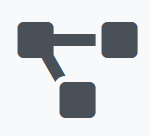 Polymorphism 101. Part 3 of 3. ActsAsTaggable without a gem. SelectizeJS
Polymorphism 101. Part 3 of 3. ActsAsTaggable without a gem. SelectizeJS
ActsAsTaggable is a great gem, however you don’t always need a swiss-army-knife heavy solution. Let’s build a lightweight solution on our own!

How does it work:
- A user can create multiple tags.
- When you create a tag, you assign it to a category (
student/lesson/teacher) - A tag can be used only for it’s category
- When creating or editing a
student/lesson/teacher, you can select multiple tags that belong to the respective category.
Tables/Models:
-
Tagfields:namecategory -
Tagging(joint table) fields:tag_idtaggable_idtaggable_type -
Clientfields: anything -
Lessonfields: anything -
Studentfields: anything
Step 1. Tags and Taggings #
console
rails g scaffold tags name category --no-helper --no-assets --no-controller-specs --no-view-specs --no-test-framework --no-jbuilder
rails g migration create_taggings tag:references taggable:references{polymorphic}
tag.rb
class Tag < ApplicationRecord
validates :name, :category, presence: true
validates :name, length: {minimum: 1, maximum: 25}, uniqueness: { scope: :category, message: "uniquene per category" }
def to_s
name
end
CATEGORIES = [:student, :lesson, :teacher]
def self.categories
CATEGORIES.map { |category| [category, category] }
end
has_many :taggings, dependent: :destroy
end
tagging.rb
class Tagging < ApplicationRecord
belongs_to :taggable, polymorphic: true
belongs_to :tag
end
tags_controller.rb - nothing special. Regular CRUD
taggings_controller.rb - not needed
Step 2. Install Selectize.js #
To select multiple tags we will use selectize.js.
console
yarn add selectize
app/javascript/packs/application.js - add these on the bottom
require("selectize")
require("packs/tags")
app/javascript/packs/tags.js - create this file
$(document).on("turbolinks:load", function() {
$(".selectize-tags").selectize({
create: function(input, callback) {
$.post('/tags.json', { tag: { name: input } })
.done(function(response){
console.log(response)
callback({value: response.id, text: response.name });
})
}
});
});
Step 3. Make any model taggable. Example - Student #
student.rb - add relationships
has_many :taggings, as: :taggable, dependent: :destroy
has_many :tags, through: :taggings
students_controller.rb - whitelist multiple tags
def student_params
params.require(:student).permit(:name, tag_ids: [])
end
students/_form.html.erb - input multiple tags with selectize
<%= f.select :tag_ids, Tag.where(category: "student").pluck(:name, :id), {}, { multiple: true, class: "selectize-tags" } %>
student/show - display tags
<% @student.tags.each do |tag| %>
<%= tag.name %>
<% end %>
That’s it! Now you have mastered THREE different approaches to using polymorphism #
This tutorial does not cover creating NEW tags with selectize. Good idea for the future?
Did you like this article? Did it save you some time?
